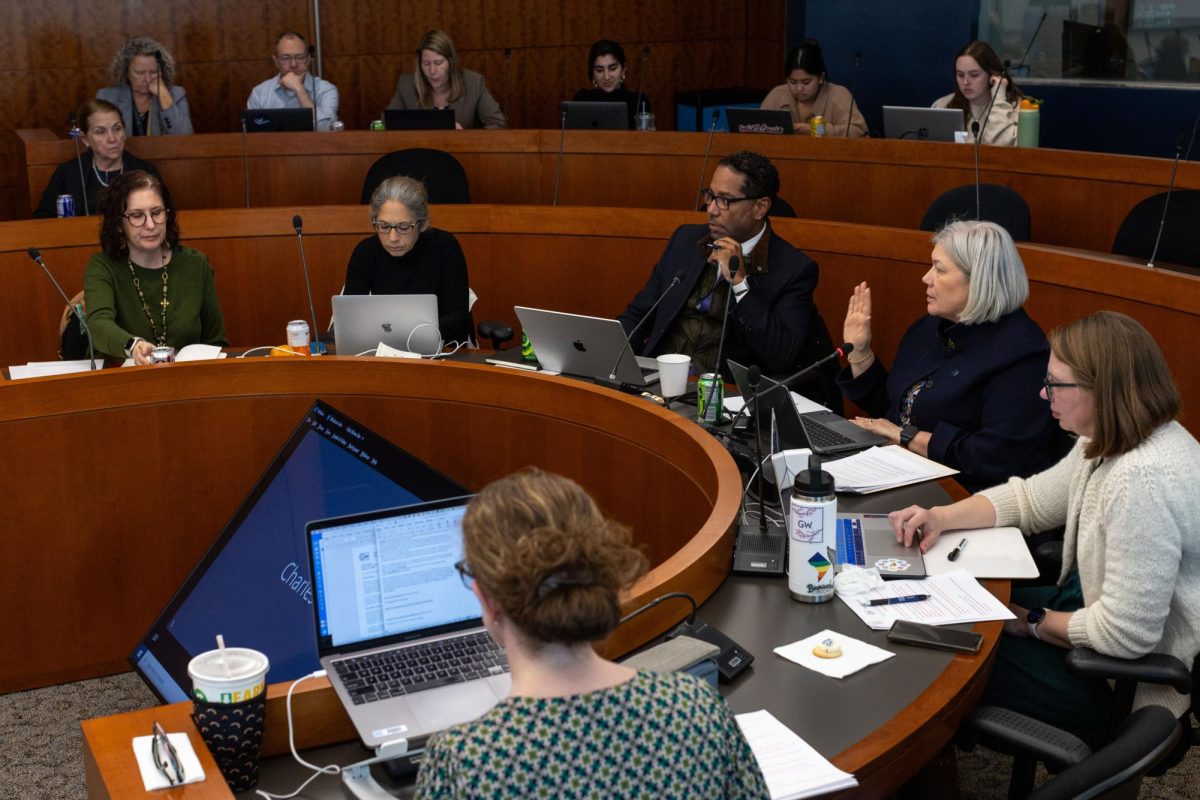The Faculty Senate will hear a report at its meeting Friday that recommends changes to the structure of the senate Executive Committee to better represent faculty and prevent the committee from withholding information from the senate.
Guillermo Orti, the co-chair of the Professional Ethics and Academic Freedom Committee and a professor of biology, will present a report on the role of the Executive Committee and recommend four options for changes to the committee to make it more representative of faculty and transparent with the rest of the senate. The report states that the committee “exceeded” its power when it kept private the Board of Trustees’ plan to arm GWPD officers from the rest of the senate in February 2023 before officials revealed the plan to the entire senate in April 2023.
The report states that the Executive Committee underrepresents the Columbian College of Arts & Sciences, faculty who work with undergraduate students and large schools at the University. The report adds that the committee could not speak on behalf of the different views of the faculty when it decided to receive information on officials’ arming decision in secret. The report also states that the committee blocked the senate’s ability to respond to and “advise and shape” University policies when it withheld information about officials’ plan to arm officers.
The report recommends four options for changes to the Faculty Organization Plan — the document that outlines the senate and faculty representation through shared governance principles — and the senate’s operations to define the Executive Committee’s role in representing the faculty and sharing information.
Orti will also introduce a resolution which will allow the senate to add up to four faculty members to a Faculty Consultative Committee — a group of faculty members from each of GW’s nine schools with senate representation assembled to consult the Board of Trustees during searches for University presidents — to “broaden diversity” and “enhance representativeness” during the selection process to include members from different disciplines and faculty ranks.
During the 2017 presidential search, faculty expressed concerns over the committee, which included only faculty members that were white and mostly men from the science, math, law and medical fields. The senate voted to add up to seven additional members to the committee in 2016 and up to eight additional members in 2021 to make the committee more diverse in rank, discipline, race and gender.
The resolution asks each school to nominate three additional members in addition to those it is already entitled to, potentially picked by the senate’s Executive Committee and confirmed by the senate.
The Professional Ethics and Academic Freedom Committee will also provide an update on a portal opened in February for faculty to report concerns over academic freedom. The report states that six anonymous responses in the portal say faculty are not “confident” about teaching topics surrounding the war in Gaza because they fear the University will not support them if students complain about their teaching to officials.
The Fiscal Planning and Budgeting Committee will present its annual report, which states that the committee has continued to monitor the University’s financial performance, including the Medical Faculty Associates’ debt to the University.
The Physical Facilities and Campus Safety Committee will also share its annual report, which states the committee reviewed and submitted recommendations for campus safety issues including the arming of GWPD, concerns with recurring facilities problems in Bell Hall and progress on the Flagg Building renovations.
University President Ellen Granberg, Provost Chris Bracey and Faculty Senate Executive Committee Chair Ilana Feldman will also share reports.





